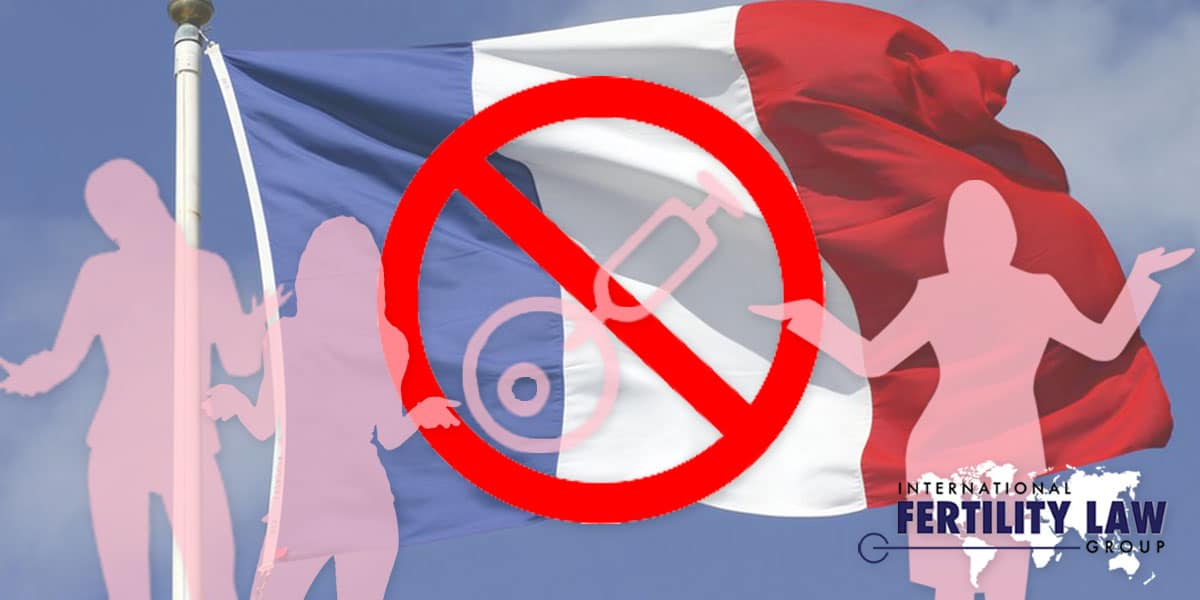
23 Feb 2021 French IVF Law Excludes Lesbians, Single Women
On February 2, 2021, just a little over a year after it initially approved a law to legalize in vitro fertilization for lesbians and single women, the French Senate voted to deny lesbians and single women access to IVF.
The February vote is just the latest in a long-running effort by activists, lawmakers and French President Emmanuel Macron to liberalize France’s assisted reproduction laws, which are among the most restrictive in the world.
As we reported, the lower house of the French Parliament, the National Assembly, approved the draft bill on first reading in October 2019, then sent it to the Senate for consideration. As we wrote then:
Under existing French law, fertility treatments such as IVF, egg-freezing or administration of fertility drugs are available only to heterosexual couples who have been married or have lived together for at least two years. Cost of the procedures would be covered by the French national health service for all women under age 43, NBC News reports.
Although the new law would do nothing to end France’s ban on surrogacy, in effect since 1994, nor to legalize fertility services for gay men wishing to become biological parents, it would represent a significant expansion of reproductive rights and parentage laws in France. Unsurprisingly, it triggered opposition from religious and far-right conservatives, even though recent polls show most French people support the reforms, as reported by Reuters.
IVF Not Covered for Single Women, Lesbians in France
The French Senate passed the reform bill 160 to 116 in January 2020, but not before amending it to exclude lesbians and women from receiving national health service reimbursement for fertility services. Senators based their opposition to the public funding on the fact that heterosexual couples are covered for fertility services due to a medical condition.
Then, on February 2, Senators voted first to eliminate access to IVF for single women, then later the same day, to eliminate access for lesbians. During the same session, the Senate voted to allow women to use their deceased husbands’ sperm to procreate.
Because the two houses of Parliament are so far apart on the bill, it will next go to a mixed committee, consisting of Senators and members of the National Assembly, which is more politically liberal than the upper house. Even if it passes into law through the efforts of both chambers, it may still face challenges in the French Constitutional Court, as reported by Global Voices.
Despite these roadblocks, lawmakers, activists and thousands of would-be parents hope the law may finally be passed in 2021. Meanwhile, as Global Voices reports, LGBT people who want to become biological parents are forced to skirt the law by obtaining donor sperm or fertility services illegally or to travel to another country for IVF or surrogacy. Sympathetic physicians risk losing their licenses if they provide services to LGBTQ or single women. After becoming parents via IVF or surrogacy, non-biological parents must still undergo a lengthy adoption process in order to establish legal parentage of their child.
New IVF Law Triggers Conservative Opposition
Conservative French lawmakers’ ongoing resistance to reproductive rights runs counter to the attitude of the French populace, as revealed in recent polls. Likewise, in the U.S., even following the legalization of same-sex marriage in 2015, conservative lawmakers continue to pass state and local laws aimed at preventing equal treatment of same-sex couples and LGBTQ Americans, in defiance of U.S. popular opinion. Progress toward equality too often is halting and frustratingly slow, but we can’t give up.
In 2019, we cited a Washington Post analysis of the opposition to IVF for single or lesbians as a proxy for the ongoing cultural conflict between those who idealize the traditional nuclear family and those who embrace the changing gender roles and family structures typical of our time. With persistence and courage, progressive French legislators have taken an impressive first step to give all women equal access to this amazing technology and to give all families equal protection under the law. We wish them every success.

















